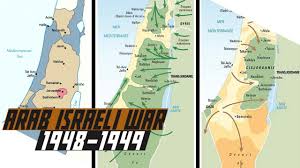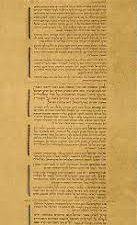1948 Arab-Israeli War
1948 Arab-Israeli War – The Middle East region has actually possibly experienced much more competition and dispute than any other part of the world. The 1948 Arab-Israeli war was the first circumstances of a bloody as well as hostile battle, caused by the statement of Israel’s self-reliance on 14 May 1948 (Schulze 1999, p. 13). The 1948 battle was brought on by a variety of ‘global and intraregional variables’ intertwining to produce a complex scenario and driver for war (Hurewitz 1952, p. 73). The battle resulted in Israel’s success, yet had significant consequences on not only local politics of this location, yet likewise worldwide relations, which are still visible today. It is a very intricate and also intricate topic which has undergone wonderful historiographical dispute (Schulze 1999, p. 17). This essay will certainly review three key reasons: Zionism, Arab nationalism as well as British foreign policy, as well as 4 essential repercussions: the death, the trouble of Palestinian refugees, Arab departments as well as region modifications.
These historical 2 motions of Arab nationalism as well as Zionism had been developing substantially given that the 19th century with the objectives of accomplishing ’em ancipation and also self-reliance’, both developing around ‘the ideas of identity, nationhood, background, religious beliefs and culture’ (Schulze 1999, p. 1). The Standard Zionist concept originated in the ‘ingrained scriptural practice’ in the idea of an announced ‘land of Israel’ where Jewish freedom would certainly be brought back (Cohen 1987, p. 33). Nevertheless, it was within the context of centuries of European anti-Semitism and also persecution that contemporary political Zionism emerged. The ‘ideological structure’ was based on the following: ‘the Jewish people comprised a nation and this nationhood needed to be verified; assimilation was turned down’ as it was neither preferable neither feasible. Moreover the concept that anti-Semitism could ‘only be overcome by physical splitting up from Europe and also by self-determination’ made Zionism popular (Schulze 1999, p. 1). The ‘spiritual and cultural ties to the Land of Israel made Palestine the sensible territorial case’ and was regarded as the ‘only sensible and also permanent option to the problem of the Jews’ (Schulze 1999, p. 2). Consequently Zionism promoted the idea that Jews were qualified to Palestine and also sustained their passion in pursuing their fight as well as battle to have self-reliance. In addition, the holocaust in Europe ‘generated a restored and also intense decision’ to develop a Jewish state (Bell 2001, p. 171). Without Zionism, Arab-Israeli problems might never have actually happened as the Jews perhaps would certainly have had no desire to develop a Jewish state, or at least not nearly enough organisation as well as support to do so.
Arab nationalism, on the other hand, was substantiated of the shared language, religious beliefs (Islam) and history of the Middle East region and also for that reason Arab nationalists ‘aspired to political co-operation’ with the Arab League (Bell 2001, p. 176). Modern Arab nationalism arose at the end of the eighteenth century, partially as resistance to European manifest destiny, which they thought was ‘unnecessary in its accomplishment’ (Schulze 1999, pp. 2-3). The Arabs commonly perceived western leaders to be pro-Israel. To Arab nationalist radicals, Israel was not just an opponent because of the ‘oppression versus their brethren in Palestine’, yet likewise as a result of its ‘close organization with what it regarded as Western imperialist ambitions towards the area’, specifically in relation to oil reserves (Hinchcliffe et al. 2001, p. 13). As a result of this, when the United Nations General Assembly passed a resolution requiring the establishment of a Jewish state, this verified their criticisms and uncertainties of the West. Arab leaders did not comprehend why they need to need to experience because of this the holocaust (Bell 2001, p. 172). Consequently Arab nationalism was an important reason for the 1948 battle as it offered Arab nations a common enemy, allowing them to unite and combat against not only Zionism, however also western power. It can even be said that the Arabs aggravated the circumstance by boycotting The United Nations Special Board for Palestine (UNSCOP). This was intended to consider the views of both Arabs and also Jews in the area, and tried to enhance stress (Schulze 1999, p. 11).
One more arguable reason for the 1948 Arab-Israeli war is the impact of British foreign policy and subsequently United Nations’ (UN) plan regarding the Middle East. After the First World War, both sides (Zionists and also Arab nationalists) ‘thought Palestine had been assured to them’ by the British (Schulze 1999, p. 5). Therefore there were currently inconsistencies in British policy as neither side understood where they stood. After the Second World War, Britain held the required for Palestine. Nonetheless the scenarios were ‘absolutely changed by the carnage of European Jews by Nazi Germany’. Because of the ‘wave of sympathy’ felt towards the persecuted Jews of Europe together with the feeling of responsibility, ‘Britain came under boosting pressure to permit Jewish migration right into Palestine’, specifically from America (Bell 2001, p. 171). The British remained in an impossible scenario, caught between 2 contrasting yet understandable viewpoints. Therefore they determined to hand the issue over to the UN as well as withdrew from Palestine in 1948. The UN established a Special Committee for Palestine (UNSCOP), which pertained to the same final thought as previous payments: that the Jewish as well as Arab insurance claims were of ‘equal validity’ which ‘the only viable service to the problem was the splitting up of the two communities’ (Schulze 1999, p. 11). As a result UNSCOP prepared the Partition Strategy. Nevertheless, this was naturally problematic, and as a result, both Jews and Arabs ‘started to equip themselves’ (Schulze 1999, p. 12). Palestinians denied the UN dividers plan, suggesting that it was ‘inherently biased as well as ignored the genuine rights of Palestinians’ (Hinchcliffe et al. 2001, p. 11).
There have actually been numerous significant repercussions of the 1948 Arab-Israeli battle. One main noticeable repercussion was certainly the damage and also death. Not only was there the death from soldiers in both sides, however also innocents were killed. As an example, the Deir Yassin massacre witnessed the fatality of 245 men, ladies as well as children. Moreover, the very same month, the Arabs retaliated, killing 77 mainly Jewish medical professionals and nurses (Ovendale 1999, p. 135).
Another significant effect of the Arab-Israeli battle of 1948 was the problem of Palestinian evacuees. By the end of the war, the UN estimated that the overall refugee population by June 1949 was 940,000 from 369 Palestinian towns as well as towns. However there are conflicts over the amount of Palestinians in fact left, as resources vary (Schulze 1999, p. 16). Regardless of the precise number, the truth continues to be that there was a considerable number of Palestinians who were left homeless as a result of the war. It is the option to this problem which triggered more conflict in between Arabs and also Jews. The Jewish debate was that Palestinians must be incorporated into the Arab states, whereas the Arabs suggested that refugees should be able to go back to their rightful houses (Schulze 1999, p. 16).
The Arab defeat also had substantial consequences. To start with it showed the lack of joined purposes as well as teamwork in between the supposed Arab League. The Arab governments ‘all pursued their own objectives’, with King Abdullah of Transjordan willing to approve a Jewish state in return for territorial gains. For that reason the Arab states were split, with Palestine playing a fairly easy role (Bell 2001, p. 174). Nevertheless, most significantly, the Arab loss had ‘vital residential effects’. It ‘de-legitimised the existing leadership, leading to revolutions, armed forces stroke of genius and instability’ (Schulze 1999, p. 15). For example in Syria, the 1948 defeat was a ‘great disaster’ and a ‘individual failing’ thought about a ‘national disaster’ (Freedman 1979, p. 259). This had an effect on future battles.
An additional effect of the Arab-Israeli battle was the territory adjustments. For Israel this was perhaps positive, having increased its area by 21 percent in comparison to the dividers resolution borders. Otherwise, this might also be considered as adverse as it enhanced hostility from the Arabs that believed Israel ought to have no land whatsoever. The Arab states boosted their territory, with Transjordan obtaining the West Financial institution and Egypt gaining the Gaza strip. This all confirms that the Arabs likewise had the intent of expanding their power as well as area. Palestine, nonetheless, ‘lost any kind of opportunity of a state of their own’ due to the purchase of land of the Arabs or Israel (Schulze 1999, p. 15). To this day, ‘dividing remains questionable among Palestinians’. It has been considered that the Palestinians have actually undertaken ‘remarkable change given that 1948’ having been changed right into a ‘mobile people’ (Freedman 1979, p. 218).
To summarise, having actually evaluated Zionism, Arab nationalism and British foreign policy as three crucial sources of the 1948 Arab-Israeli battle, as well as three significant effects of the battle, this essay can end that the 1948 Arab-Israeli battle was a highly intricate conflict with its beginnings going as far back as biblical times. The impacts of the First as well as Second World War contributed to the foreign policy of the British in handing over the Palestine Required to the UN, which subsequently resulted in the declaration of independence for Israel. It was this declaration which created outcry amongst Jews and also Arabs alike, and prompted the war. The effects of this war have been devastating in shaping Middle Eastern politics also up until today. Hinchcliffe specifies that ‘while major military battle in between Israel and its Arab neighbours’ has actually not happened given that 1982, the ‘absence of meaningful tranquility’ has actually remained to the end of the century. 1948 Arab-Israeli War



